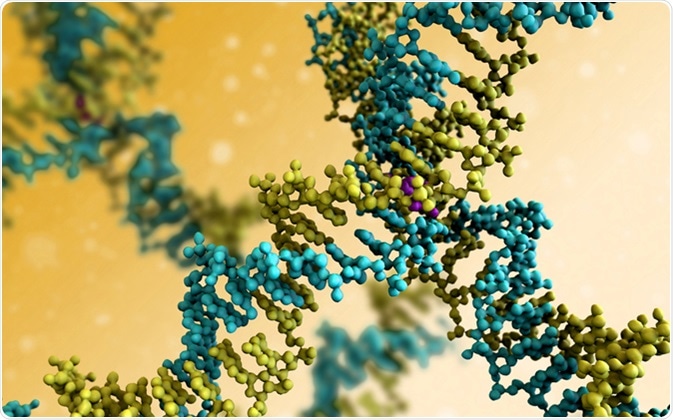Researcher Paula Bates, John Trent, and Don Miller developed a therapeutic drug that could potentially block the severe acute respiratory syndrome coronavirus 2 (SARS-CoV-2) responsible for the COVID-19 pandemic. Their research was initially aimed at helping patients suffering from multiple types of cancer.
“Like many scientists, as soon as I heard about the new coronavirus, I wanted to help and started to think about how my area of research might intersect with coronavirus research efforts,” said Dr. Bates. “That’s when I realized that maybe the work I had been doing in the past toward developing anti-cancer drugs could actually be useful to treat coronavirus.”
She partnered with fellow researcher Kenneth Palmer to adapt her research against the coronavirus. Palmer is the director of UofL’s Center for Predictive Medicine for Biodefense and Emerging Infectious Diseases (CPM). He’s been involved in other COVID-19 related projects, including one named Q-Griffithsin.
Aptamers and COVID-19
Dr. Bates’s research is designed around a piece of artificial genetic code, called an aptamer. Also called artificial antibodies, or nucleic acid antibodies, these are small single-stranded bits of RNA or DNA which fold to form to complex structures. They then bind to a prespecified target like proteins with high affinity and specificity.

DNA Molecule Model. Image Credit: UGREEN 3S / Shutterstock
The specificity is because of a variable region that consists of about 40 nucleotide bases, which confers both the unique structure and ligand binding capability. They are capable of selecting between targets with a difference of just one functional group.
The binding between aptamer and target is primarily because of electrostatic interactions, which, of course, depends on the variability of the sequences in different aptamers.
Aptamers bind differently to small and big molecules. While they engulf the small molecules, they typically interact only with the external surface of big molecules.
Aptamers can work under a variety of physiological conditions and can be modified to accommodate labels such as biotin or fluorescent labels. This makes aptamer production highly controlled and reproducible.
The importance of aptamer technology is the ability of aptamers to bind to viruses, cells, and tissues. This makes them suited to applications like drug discovery, diagnostic, and therapeutic applications.
The role of nucleolin
Aptamers that bind to a specific protein called nucleolin are important as potential therapeutic agents against cancer cells. Nucleolin is a protein found in abundance in the nucleolus, accounting for 10% of nucleolar protein.
The nucleolus is concerned with protein synthesis, being the site of ribosomal RNA production. In a metabolically active cell, and therefore within proliferating cells, the nucleolus is large and prominent.
Nucleolin is found in the nucleolus within the nucleus, cytoplasm, the inner side of the cell membrane, and even on the cell surface in some situations. It is found at higher than normal levels on the cell surface and the cytoplasm in most cancer cells and seems to be linked to cancer progression.
Nucleolin has several different functions, involving protein synthesis by ribosomal RNA production, ATPase activity, and cell cycle regulation. Inhibition of nucleolin causes disruption of the nucleolus, the arrest of the cell cycle, and defective centrosome duplication.
Viruses such as SARS-CoV-2 work by “hijacking” nucleolin to make use of its functions to bring about viral replication inside the host cell. The aptamer developed by the UofL researchers can help to prevent this from happening, binding to nucleolin to prevent the virus from reproducing in cells.
Will this work against SARS-CoV-2?
Palmer has conducted proof-of-concept experiments showing that relatively low doses of the drug are effective against the coronavirus. Even better, the treatment has already been tested in these doses on cancer patients, showing few adverse side effects. “It might speed things up a bit,” Bates said. “It might allow us to get into clinical trials with the coronavirus faster than trying to find a new drug from scratch.”
Dr. Bates says they’re lucky to have access to University of Louisiana’s facilities, which include one of the few biocontainment labs in the U.S.A, and the only one in Kentucky. It complies with federal safety and security regulations and was established by the NHS to conduct research on infectious pathogens. This lab has stringent safety measures and has a Biosafety Level Three safety rating. All this is what enables researchers to work with the SARS-Cov2 virus while minimizing risk both to themselves and the populace.
Dr. Bates and her team are trying to expedite the process of getting approval to test their drug on COVID-19 patients who are severely ill. This process includes an application to the Food and Drug Administration (FDA. She says she’s “cautiously optimistic” that they’ll get the green light in the near future.